Today’s Small Business Feature is about an extraordinary Eye Doctor in Waterloo, IA
If you’ve been searching for an eye doctor in Waterloo, IA for yourself or for your children, then look no further. From time to time I like to share blog posts that feature local businesses I trust. Dr. Kaila Egan serves optometry needs in the Cedar Valley and I met her less than 6 months ago when I started my search for a new eye doctor. I always love the opportunity to support other female owned businesses, and Dr. Egan took over the practice from Wilson Eyecare in 2015.
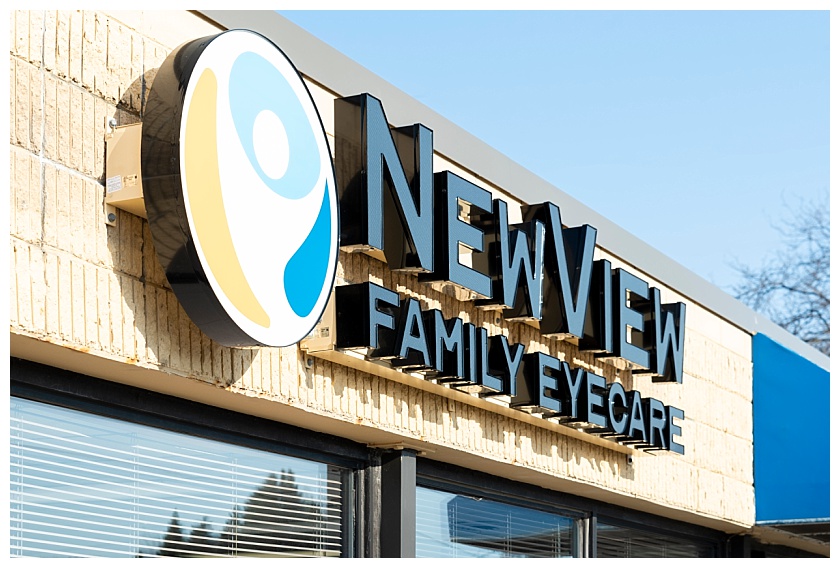
Before I tell you a little about Dr. Egan and have her share answers to 5 Commonly Asked Questions About Children’s Eyecare, I would love to brag on her for a minute.
When I first went in to get my eyes checked, I knew I wanted to keep my current frames but update the lenses with the new prescription. They told me we could do that. Well, 3 weeks passed and the office called with bad news.

They told me the lens manufacturer sent them the new lenses but that they couldn’t be cut to fit my old frames. Dr. Egan’s team was committed to serving me well and guaranteeing that things were made right.
Guess what they did? The lens manufacturer paid for BRAND NEW frames (see here – they’re the smoke/cocoa color and super cute!) and shipped them to me overnight. Ever since my positive experience there, my husband has started seeing Dr. Egan and so has our oldest who will be in Kindergarten next year.
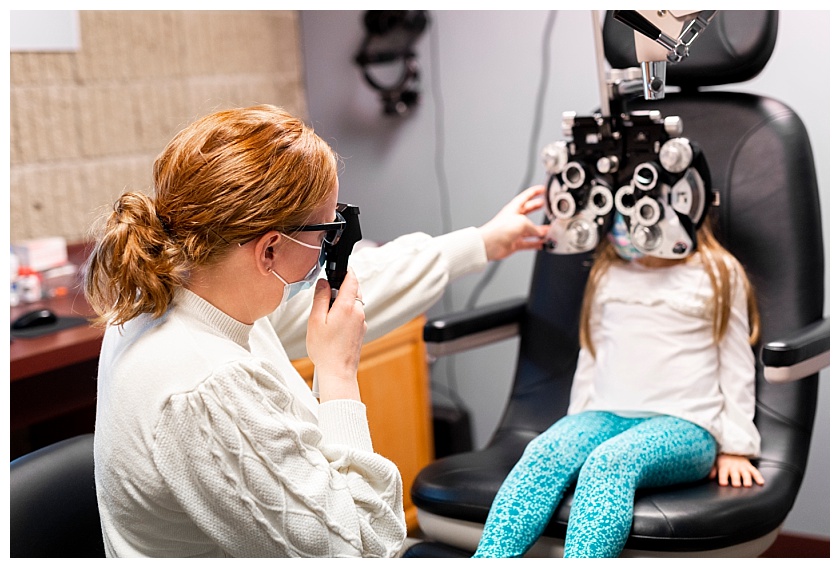
Learn More about Waterloo, IA Eye Doctor, Dr. Kaila Egan
Dr. Egan received her first pair of glasses in the 3rd grade and still vividly remembers the feeling when she put on her glasses for the first time and was finally able to see all the details. She formed a good relationship with her childhood optometrist and was later able to shadow him while she was in college. She said it only took one day of shadowing to know that she wanted to be an eye doctor.
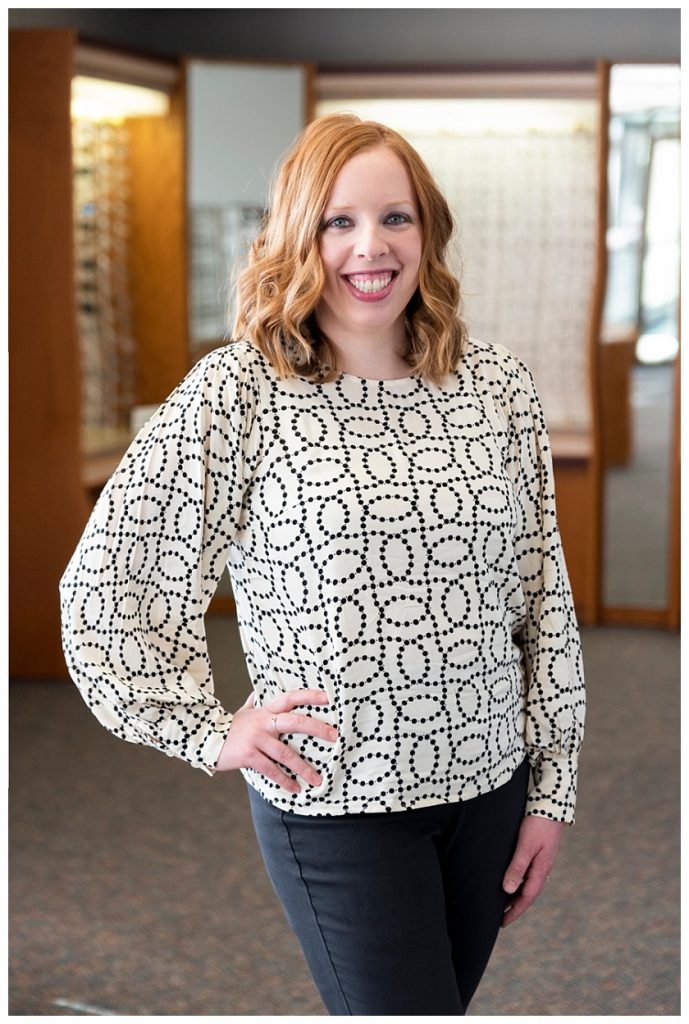
Dr. Egan is a graduate of UNI (go Panthers!) and attended Southern College of Optometry in Memphis, TN for her doctorate in optometry. She has been practicing eyecare in Waterloo, IA since 2013. Outside of work, Dr. Egan is married and is a mother to a 2.5 year old sweet boy and an easy going 7 month baby girl. When I asked Dr. Egan what she loves most about being a mom, she said, “I love watching them grow into their personalities.”
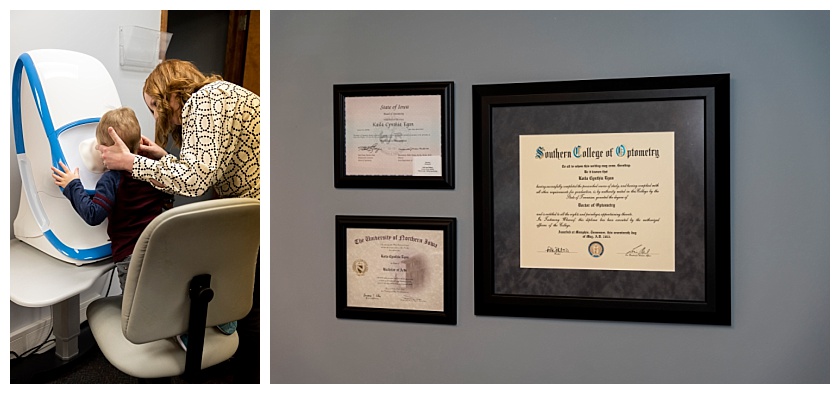
Now that we have a rising Kindergartener in our household, it was news to me that they had to have an eye exam before attending Kindergarten. I’ve asked Dr. Egan to provide answers to some of the 5 most commonly asked questions about children’s eyecare.
5 Commonly Asked Questions About Children’s Eyecare
1. HOW OLD SHOULD A CHILD BE WHEN THEY FIRST SEE AN EYE DOCTOR ?
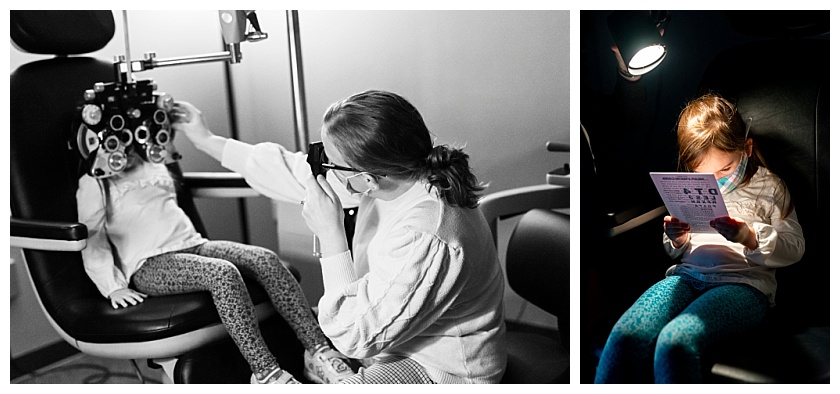
“Eye examinations are recommended as early as 6 months to 12 months for age and then at least once between 3-5 years and yearly after that. Babies are born with vision that is blurry and which will improve greatly over the first 6 months. Eye turns that are more consistent would be something to have evaluated.
In Iowa, it is recommended that you have a complete eye exam prior to entering kindergarten and the form that you turn in to the schools is generally in your welcome packet from schools.”
2. HOW DO I KNOW WHAT IS NORMAL EYE DEVELOPMENT FOR MY CHILD?
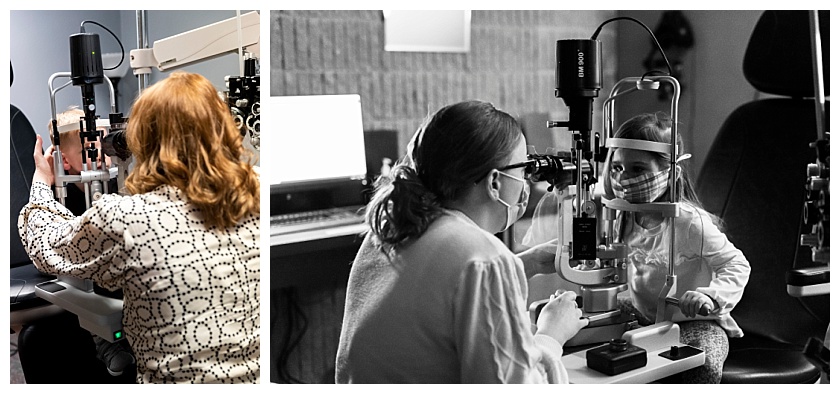
“The AOA (American Optometric Association) is a great resource for parents that goes over the different stages for kids and what to expect in their child’s eyes and the development. Parents can learn more here.”
3. HOW CAN I PROMOTE GOOD EYE DEVELOPMENT IN MY BABY?
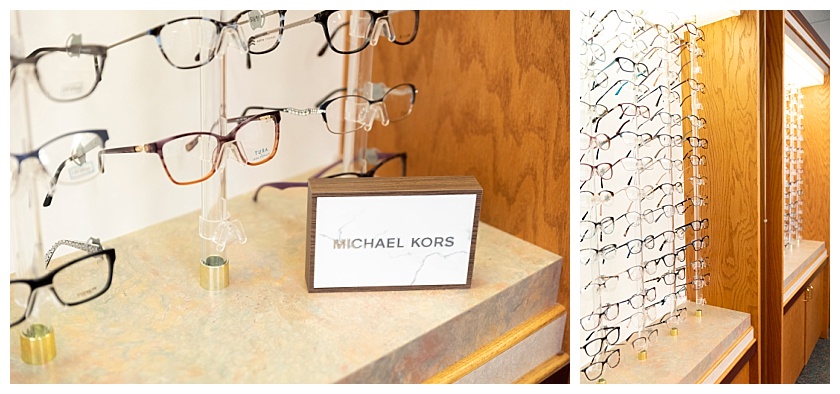
“Eye issues in babies are usually rare. Best things to help promote healthy eyes in babies is tummy time which is great for helping with focusing and neck and eye movements, activities that promote eye hand coordination- patty cake, playing hide and go seek, pushing balls back and forth as they grow older and reading to babies.”
4. What are signs that my child may have a vision problem?
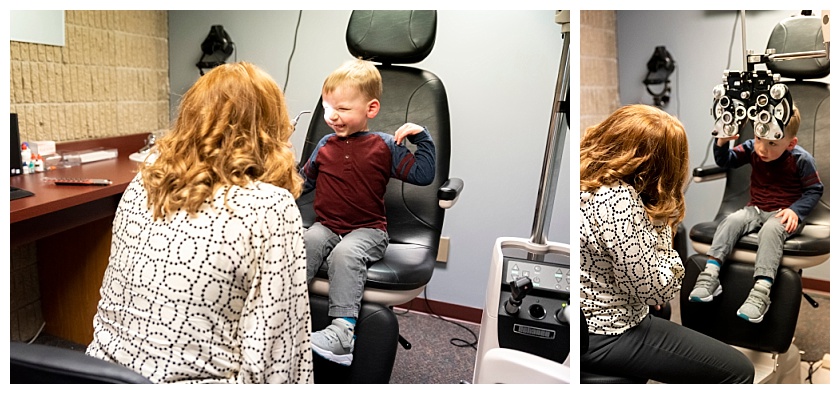
Signs that your baby may have a vision problem:
- Excessive tearing may indicate blocked tear ducts.
- Red or encrusted eyelids could be a sign of an eye infection.
- Constant eye turning may signal a problem with eye muscle control.
- Extreme sensitivity to light may indicate an elevated pressure in the eye.
- The appearance of a white pupil may indicate the presence of eye cancer.
Signs that your toddler/preschooler may have a vision problem:
- Sitting close to the TV or holding a book too close.
- Squinting.
- Tilting their head.
- Covering an eye.
- Frequently rubbing their eyes.
- Short attention span for the child’s age.
- Turning of an eye in or out.
- Sensitivity to light.
- Difficulty with eye-hand-body coordination when playing ball or bike riding.
- Avoiding coloring activities, puzzles, and other detailed activities.
Signs that your school aged child may have a vision problem:
- Complaints of discomfort and fatigue.
- Frequent eye rubbing or blinking.
- Short attention span.
- Avoiding reading and other close activities.
- Frequent headaches.
- Covering one eye.
- Tilting the head to one side.
- Holding reading materials close to the face.
- An eye turning in or out.
- Seeing double.
- Losing place when reading.
- Difficulty remembering what he or she read.
5. What are your recommendations on screen time?

“According to the American Academy of Pediatrics infants 18 months and younger should not have any screen time; other than face to face interaction like Skype or Facetime. Children 2-5 years old one hour per day; preferably high quality interactive media that can be done with an adult. Children 6 years and older limited screen time spent outside of school work which would not be included in the recommended time. For this age adequate sleep (8-12 hours), 1 hour of physical activity and face to face social interaction should be a bigger priority.
The 20-20-20 rule is a good rule to use while using electronic devices. For every 20 minutes of near work, take a 20 second break and look 20 feet away. Also stop using devices 2-3 hours before bed. Blue light from screens suppress melatonin production, which can affect your ability to fall asleep.“
I hope that you’ve found these answers from Dr. Egan to be very helpful as you consider your child’s eyecare. If you’d like to learn more about Dr. Egan and her practice, you can visit here or give their office a call at (319) 236-2020.
Comments